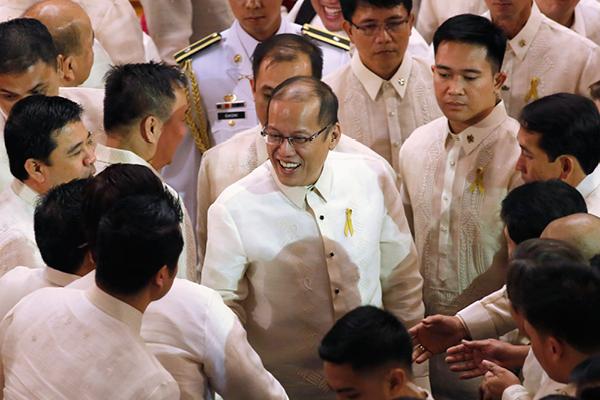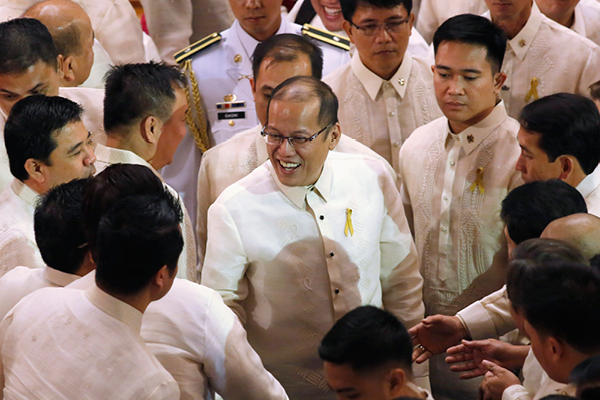
Following some two decades of efforts, the Philippines finally enacted its Competition Law earlier this year. Ranajit Dam speaks to local lawyers about the impact it is expected to have. With additional reporting by Manuel Mogato
Skip to
The Philippine Competition Act (PCA), which took two decades for the country’s Congress to enact, is now a reality. A few months ago, President Benigno S. Aquino III signed into law landmark fair trade legislation aimed at curbing cartels, price fixing and other forms of anti-competitive practices, which have long stifled economic growth. The new law seeks to promote free and fair trade as well as prevent large companies from monopolising business and setting up cartels and from manipulating and distorting market prices. It will also create the Philippine Competition Commission (PCC), an independent body that will regulate and rule on cases involving practices such as anti-competitive acts, cartels and price manipulation.
Lawyers say the PCA was badly needed, and thus, most welcome. “There have been Philippine competition laws even prior to the enactment of the recent statute,” says Arlene M. Maneja, a partner at SyCip, Salazar, Hernandez & Gatmaitan. “Over the years, various industry-specific laws also have included anti-trust provisions. However, there has been little enforcement of these laws. We think this stemmed from, among others, a lack of clear rules and mechanisms to enforce these laws, the challenge of proving the elements of the crime beyond reasonable doubt and, generally, the lack of a competition law ‘champion,’ that is, an authority with powers to enforce the laws and a mandate to develop competence in the complex task of competition law enforcement.”
She adds that the most the most important features of the new competition law are the creation of the PCC, which acts as the national competition authority; the imposition only of administrative fines and civil penalties on violations of the law – except for behaviour constituting hardcore cartels that remains subject to criminal penalty – as this reduces the disincentives against filing complaints for breaches of competition law; and the institutionalisation of a National Competition Policy, to be developed by the National Economic and Development Authority (NEDA), to ensure that the Philippine government has an overall strategic direction for the promotion of competition in trade and commerce.
The PCC will be able to impose fines of up to 250 million pesos ($5.52 million) and courts could impose jail terms from two to seven years to company officers and directors found guilty of unfair practices. Trade officials say the new law will usher in an era where micro, small and medium-sized enterprises can compete with large and multinational firms ahead of the ASEAN Economic Community.
“Some might say that the fact that the law has been enacted at all and has finally been passed is the most important matter and a tremendous achievement,” say Norma Margarita B. Patacsil, partner, and Marck Joseph I. Macaraeg, associate, at Gatmaytan Yap Patacsil Gutierrez & Protacio (C&G Law).
“This is because previous bills/drafts of the law have languished in the Philippine Congress for many years, but finally, this year – pursuant to ASEAN integration – the country’s comprehensive competition law was finally approved.”
Back to topPOSITIVE IMPACT
Maneja expects that the new law will encourage business organisations to take advantage of its two-year grace period provision to evaluate current business agreements, policies and practices to determine validity and acceptability under the new competition law. “We think the new competition law complements the current direction of the Philippines towards spurring high economic growth and development by ensuring that those pursuing business expansion will not do so at the expense of smaller business or abuse their market position,” she explains.
Patacsil and Macaraeg believe that the passage of the act has arguably raised awareness of the need to ensure fair trade practices and curb anti-competitive conduct. “As long as the law is enforced and applied properly – starting with the appointment of qualified persons to the PCC and the commission’s issuance of clear and fair implementing rules and regulations for the law which will fill in necessary details for its due implementation – we believe that the law should contribute to and maintain the momentum of the Philippines’ current economic growth,” they say.
And companies are responding accordingly. “Businesses have long seen the drafts of the various competition laws proposed in the Philippine Congress and, given that the new competition law does not materially deviate from the key provisions of those drafts, we think it is in line with companies’ expectations,” says Maneja. “The act adopts some of the key principles of the ASEAN Regional Competition Guidelines, much like what other ASEAN nations have done, albeit with some country-specific modifications and exceptions. The PCA also adopts certain principles from U.S. antitrust laws as well as the competition rules of the European Union.”
She also points out that as a result, her firm expects to see increased competition work over the next two years in the form of conducting compliance assessments and training as well as merger control notification under the new law, since these are the provisions that have immediate impact on businesses and their transactions. “The firm has been re-aligning resources to ensure that we are able to meet the clients’ requirements and, if necessary, beef up our manpower requirements through direct hiring or exploring partnerships with institutions requiring complementary skills to address competition concerns,” she adds. It is a sentiment shared by Patacsil and Macaraeg at C&G Law. “Based on the number and quality of inquiries our firm has had thus far on the PCA, we believe that competition law will remain a robust area for our firm,” they note.
Maneja of SyCip further notes that she expects 2016 to involve increased competition work as information about the new competition law trickles down to businesses and developments occur relating to the constitution of the PCC and the issuance of the implementing rules and regulations. “At present, we note a level of scepticism on how urgent it may be for businesses to ensure compliance, given past experience regarding weak enforcement of existing antitrust or competition laws,” she says. “As it becomes clear to businesses that regulators are serious about enforcement, we expect them to act prudently and consult legal counsel, given the serious fines and penalties under the new competition law and the severe reputational damage that conviction would bring. Another impetus for businesses to really take the PCA seriously is the entry of foreign investors who come from jurisdictions with robust competition law enforcement and who will likely view the Philippine competition law from that perspective.”
Back to top